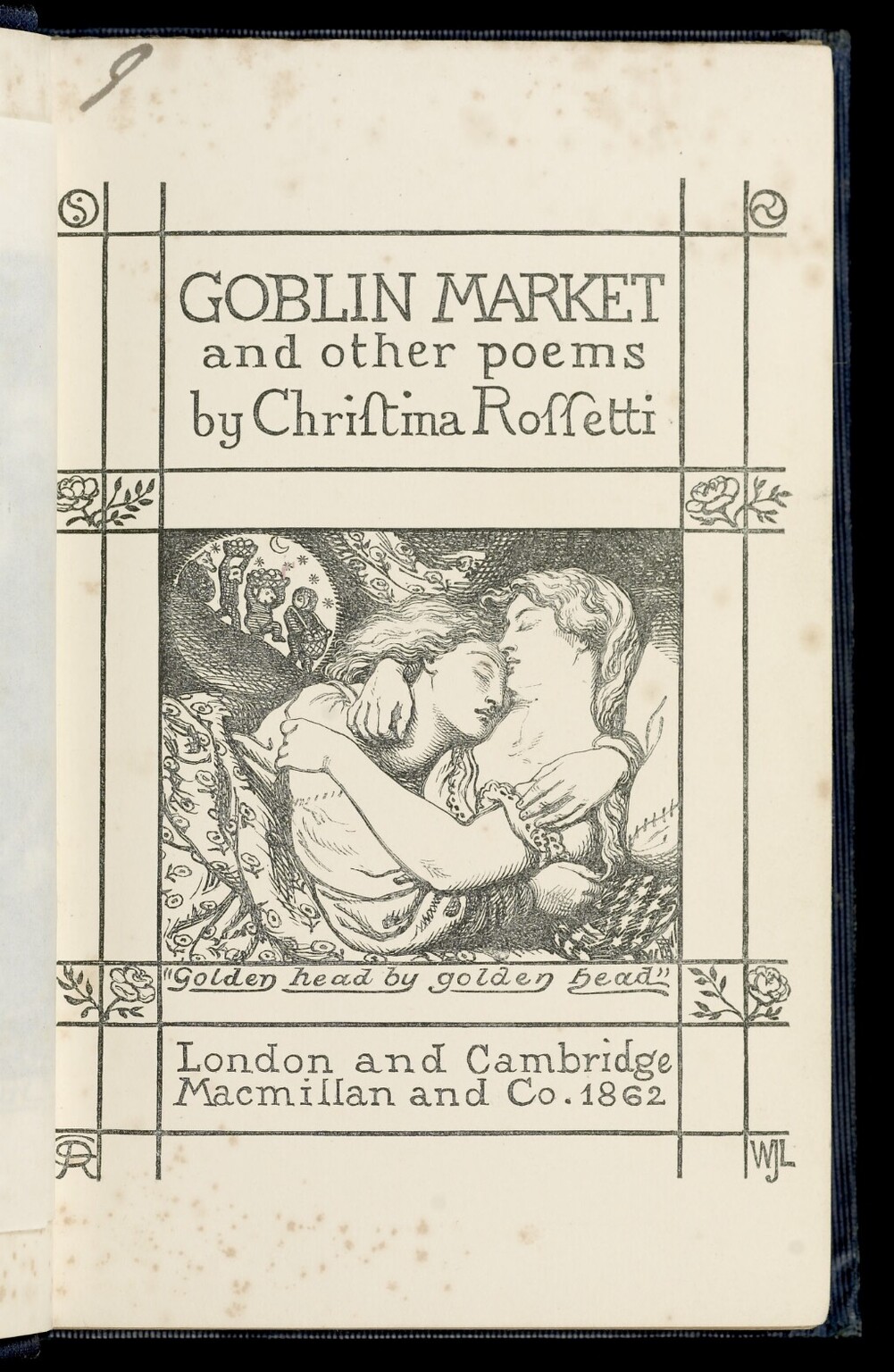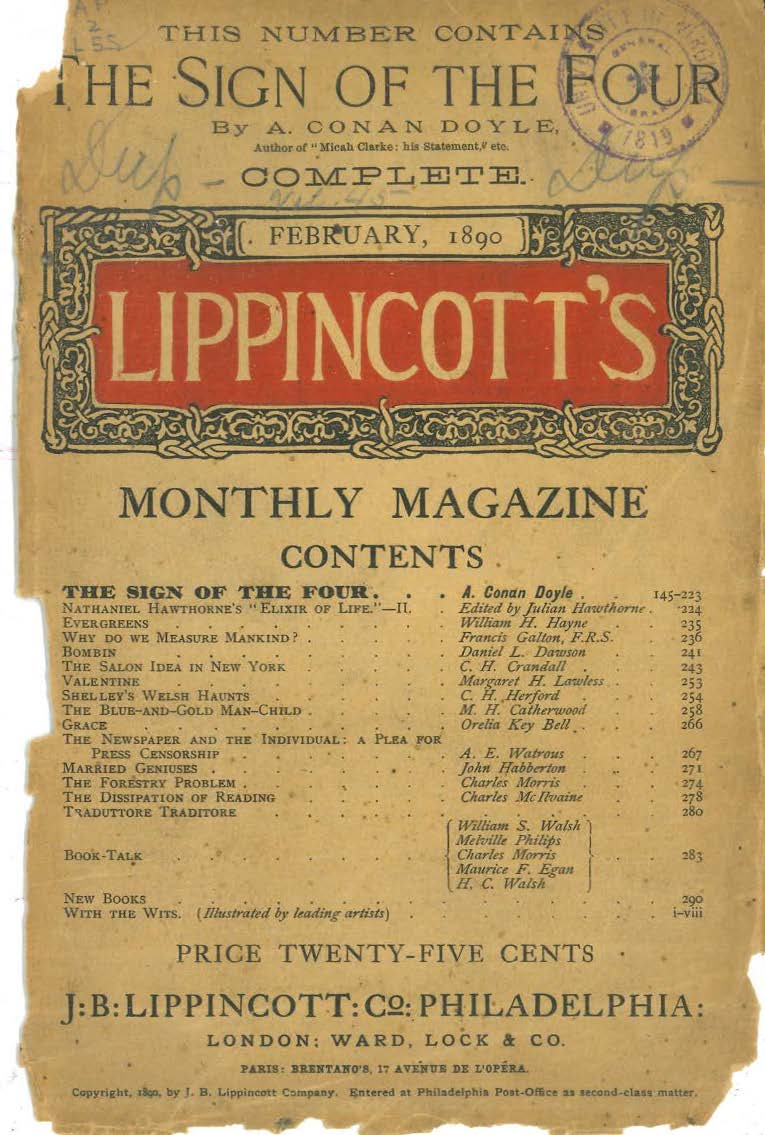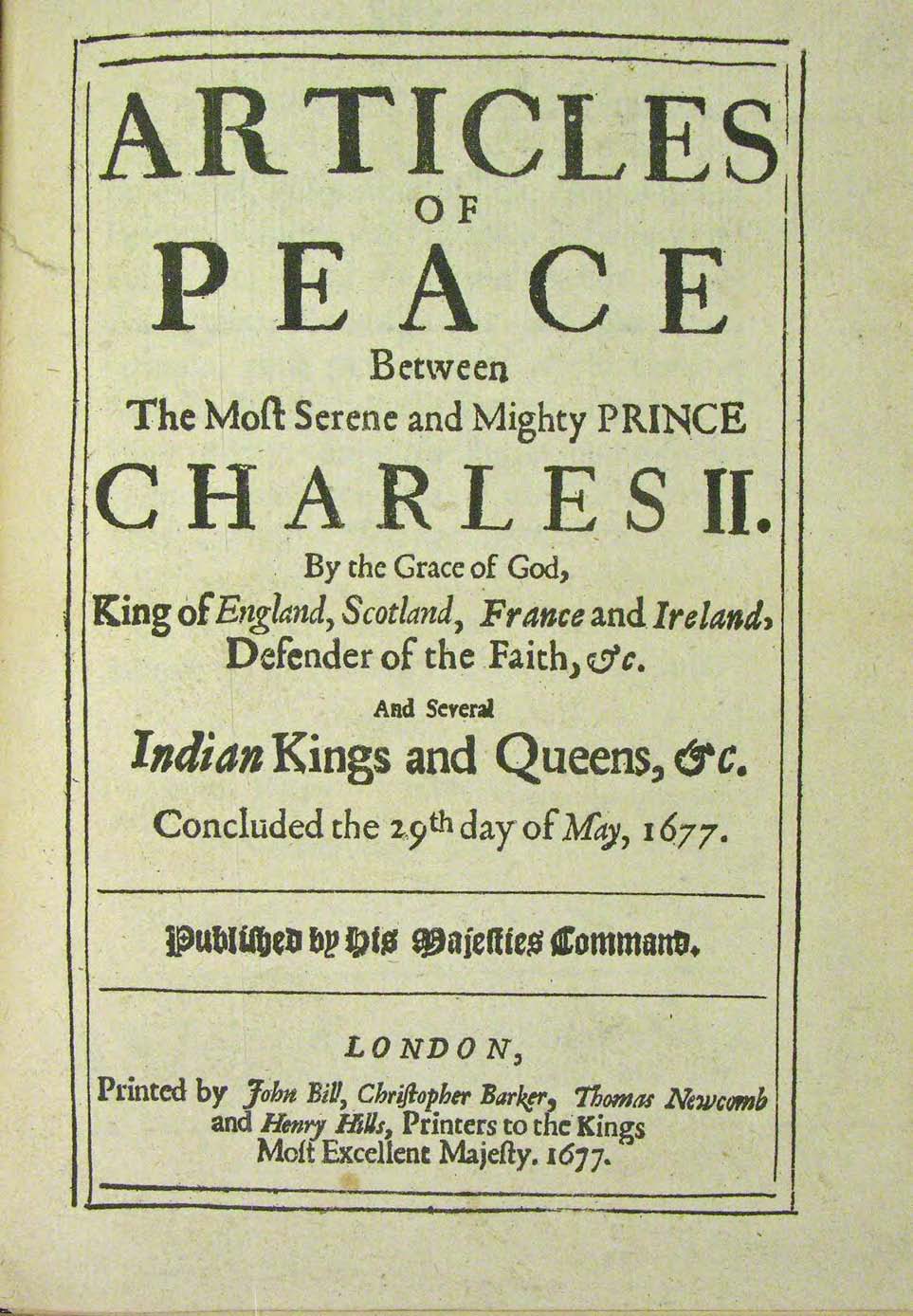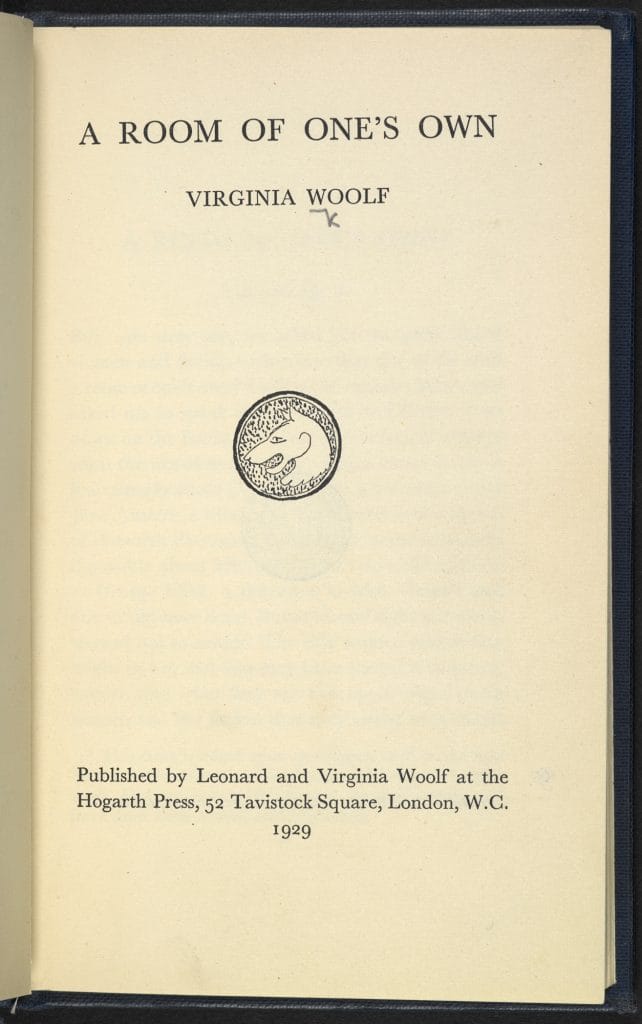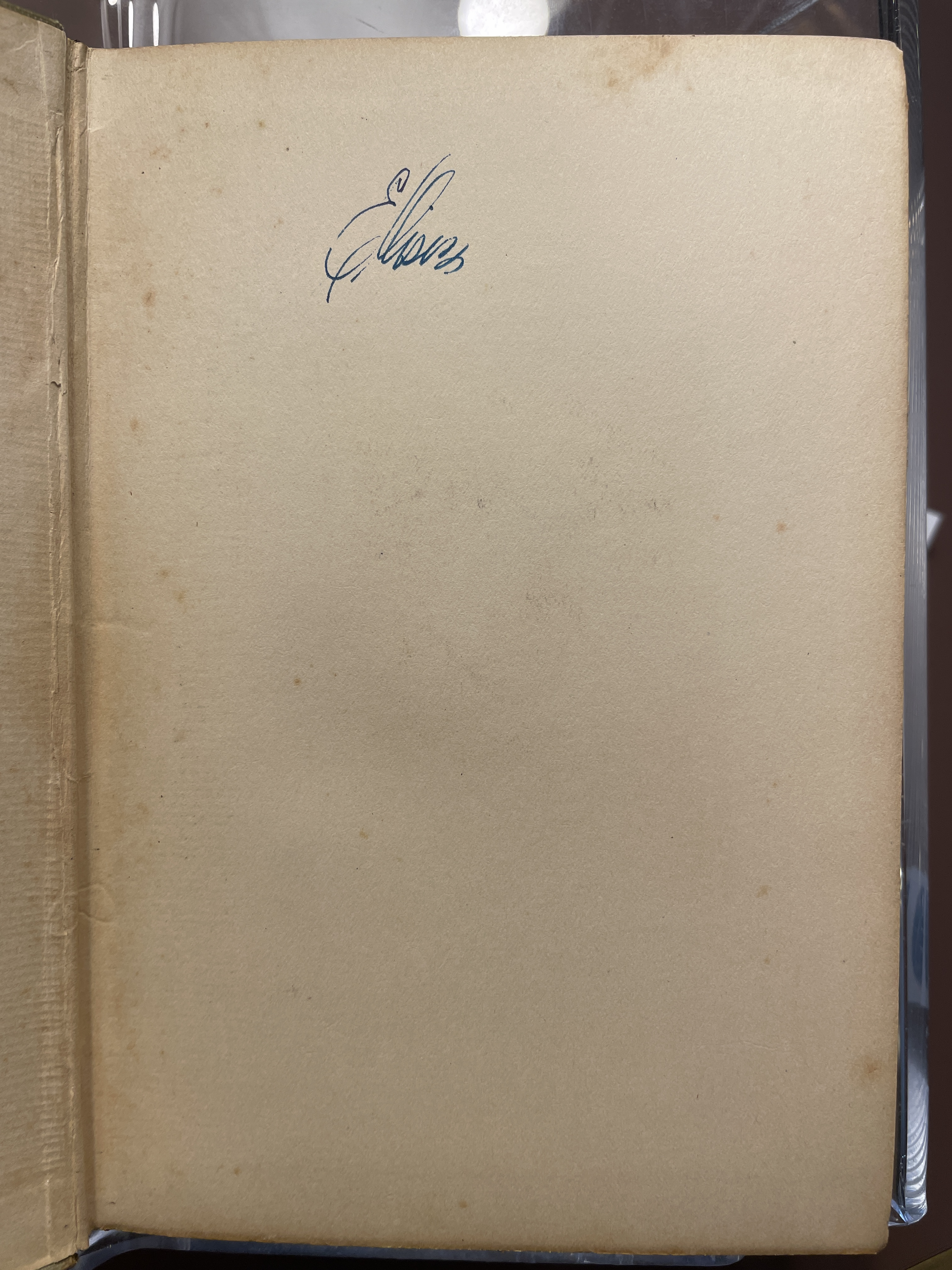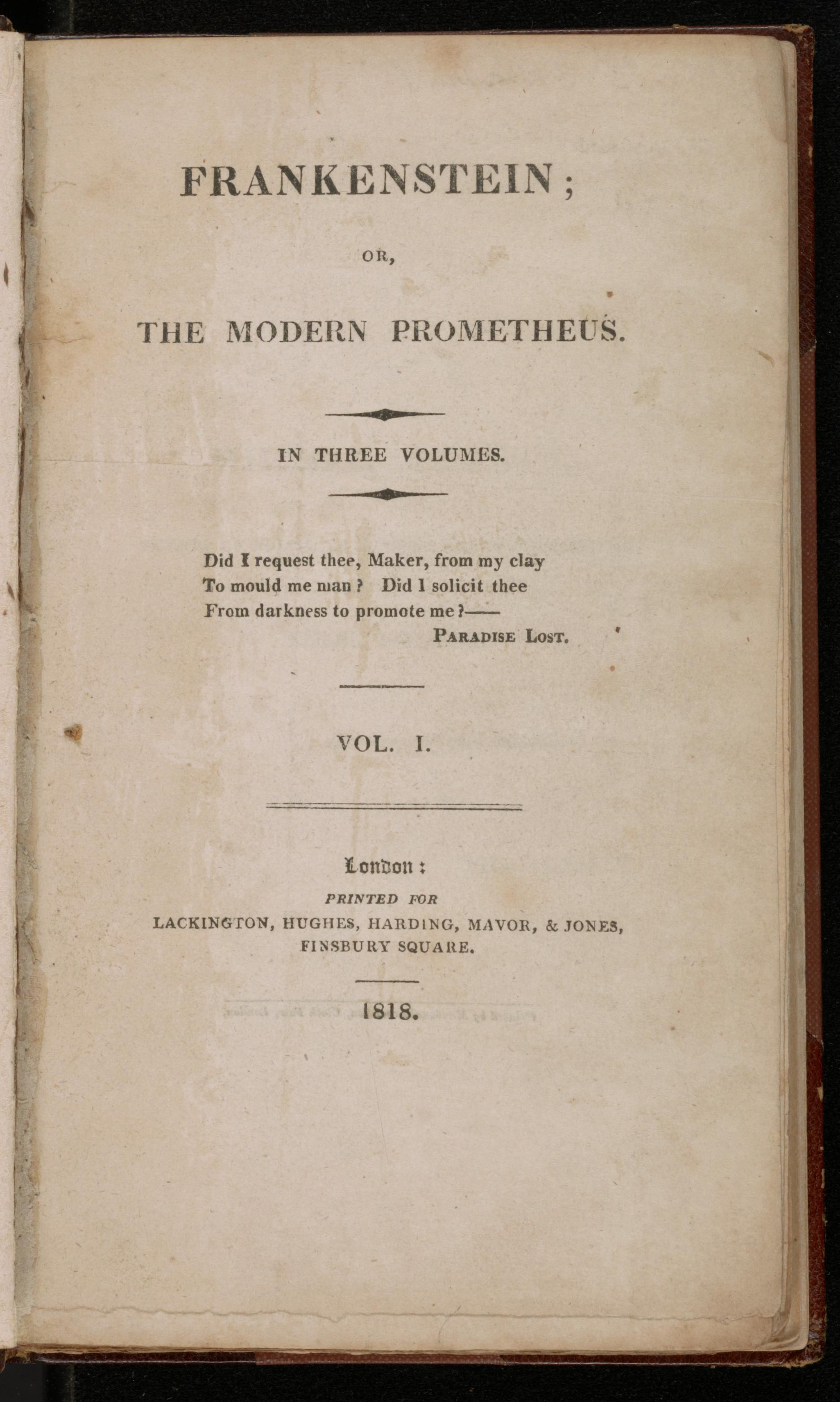
Need good, free, digital texts?
All in one place?
With 100 authors represented and 300 texts in our database, Literature in Context is a true open access replacement for proprietary publisher materials, "inclusive access" plans, and anthologies that have some of what you want.
$75
average cost of a new
textbook for English literature
4
publishers control virtually all
of the textbook industry
66%
of students don't buy textbooks
because of cost
44%
decline in student textbook
expenditure 2012-2022
Be on the same page. Literally.
Textbooks cost money! Students may not buy required materials because of that cost, turning instead to the web for accessible course readings. But it can be difficult to discuss content when everyone's on a different page. Get on the same page with your students by assigning free materials from one common collection. Page numbers, line numbers, and citation information are all readily available.
Browse the Collection
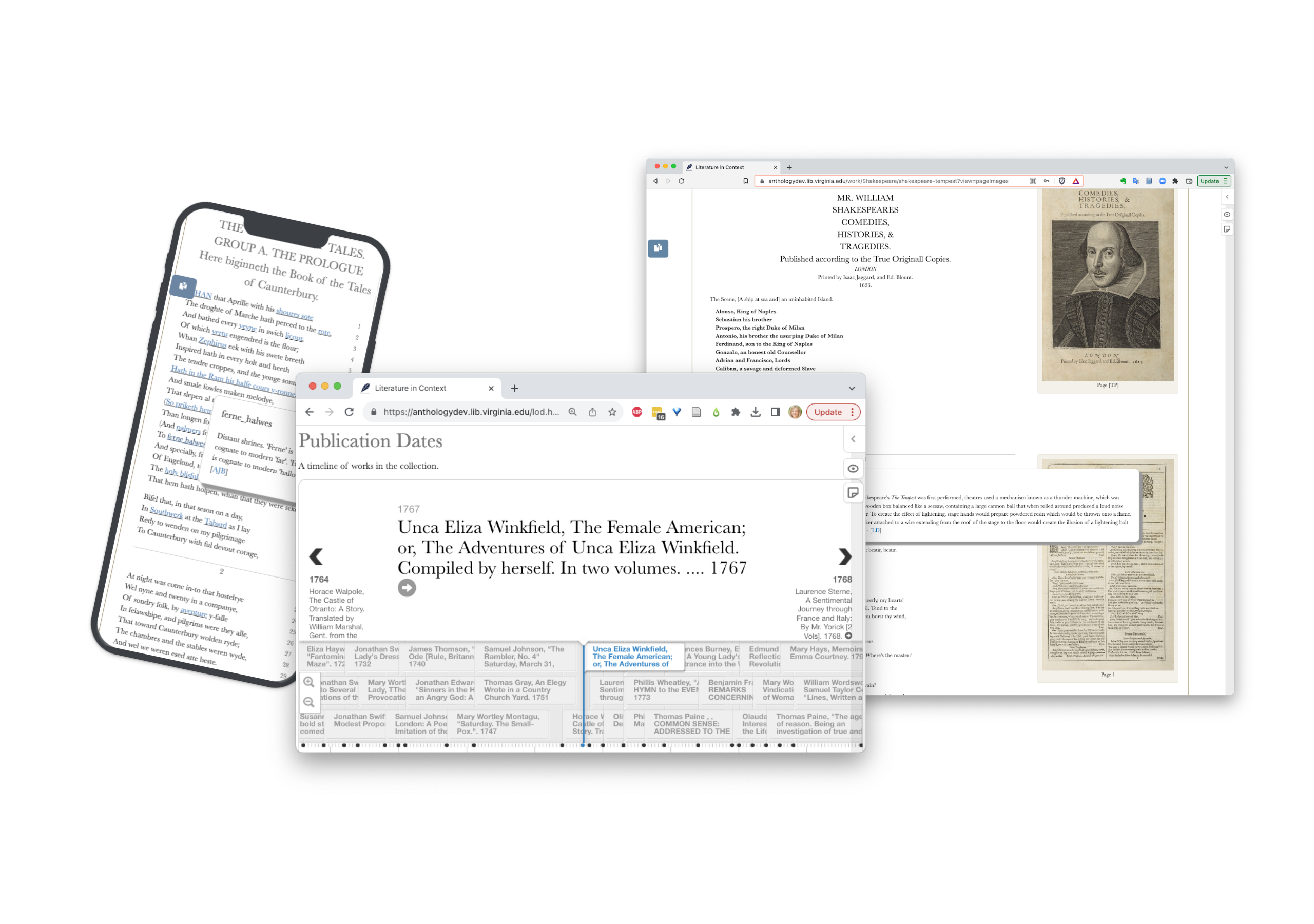
Encourage interactivity
We have lots of interactive tools to help bring reading to life. A timeline of content in the collection helps contextualize things. A map helps understand where it all happens. Social annotation with Hypothesis allows students to keep notes and reply to peer thoughts--and lets you organize lecture notes.
Browse Data VisualizationsGet a sense of the material object.
Most editions in the collection come with facsimile page images, providing a feel for the material object. Some editions include page images for the entirety of the text, and others, only a few. Check the sources tab on each edition for links to facsimiles under copyright.
